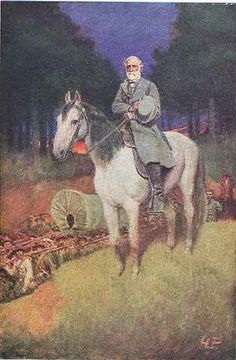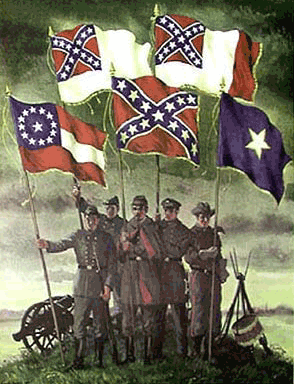Dearest Freddy,
This day, in 1861, saw the arrival of blockade runner owned by the Confederacy. It was called Fingal, but would later bear the appellation C.S.S. Atlanta.
The Fingal hove into Savannah bearing a cargo of military supplies--arms, munitions, and the like. As, throughout our late war for independence, we tended to have a shortage of such things, I must conclude that it was a welcome arrival.
I would like to here take a brief moment to discuss the blockade.
International law stipulated that, in order of a blockade to be legitimate, the entire coast-line had to be patrolled constantly to ensure that there were no gaps. The Union Navy had not enough ships to effect this, so, technically, the blockade was not legitimate. Roughly sixteen percent of the Confederate blockade runners were quite successful, smuggling in around $200,000,000 worth of supplies; this would be food and munitions mainly. They also managed to export over 1, 250,000 bales of cotton--even as the war raged over the land where it was grown.
Also for your consideration, look at the enclosed copy I have made you of the 1856 Declaration of Paris.
Declaration of Paris; April 16, 1856.
The Plenipotentiaries who signed the Treaty of Paris of March assembled in conference,
Considering: That maritime law in time of war has long been the subject of deplorable disputes;
That the uncertainty of the law and of the duties in such a matter gives rise to differences of opinion between neutrals and belligerents which may occasion serious difficulties, and even conflicts; that it is consequently advantageous to establish a uniform doctrine on so important a point;
That the Plenipotentiaries assembled in Congress at Paris cannot better respond to the intentions by which their Governments are animated than by seeking to introduce into International relations fixed principles in this respect.
The above-mentioned Plenipotentiaries, being duly authorized, resolved to concert among themselves as to the means of attaining this object; and having come to an agreement, have adopted the following solemn declaration:
1. Privateering is and remains abolished;
2. The neutral flag covers enemy's goods, with the exception of contraband of war;
3. Neutral goods, with the exception of contraband of war, are not liable to capture under enemy's flag;
4. Blockades, in order to be binding, must be effective-that is to say, maintained by a force sufficient really to prevent access to the coast of the enemy.
The Governments of the undersigned Plenipotentiaries engage to bring the present declaration to the knowledge of the States which have not taken part in the Congress of Paris, and to invite them to accede.
Convinced that the maxims which they now proclaim cannot but be received with gratitude by the whole world, the undersigned Plenipotentiaries doubt not that the efforts of their Governments to obtain the general adoption thereof will be crowned with full success.
The present Declaration is not and shall not be binding, except between those Powers who have acceded, or shall accede, to it.
Fredrick gazed at the word intently, "I think...I think it must have something to do with government officials. Let's look it up to be sure."
Practically before the words were out of his mouth, Charles Clark was racing down the hall to go borrow a dictionary from someone fortunate to actually own one. Moments later, he returned and the boys found their word.
"You were right," Chuck remarked magnanimously. "A person, especially a diplomat, invested with the full power of independent action on behalf of their government, typically in a foreign country."
They returned to James Hamilton's letter.
Fifty-five nations ratified this treaty; the United States was not, initially one of them, though in 1861, they agreed to abide by it. As you may see from the document, the Union blockade of the Confederate coast line did not fulfill the standards.
Also, if I may point you back a few days to the capture of our commissioners by Captain Wilkes, USN, does it appear to you that he broke this treaty in seizing Mason and Slidell?
Stand in justice,
Grandfather

 RSS Feed
RSS Feed

